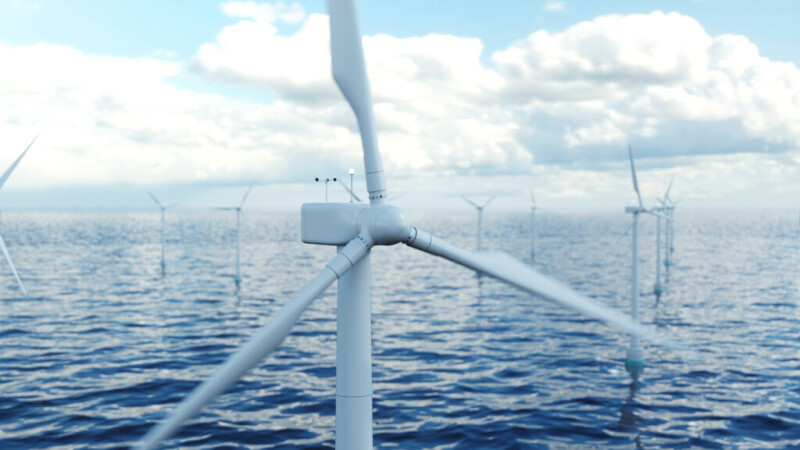Ørsted’s 1,100-megawatt Ocean Wind 1 project off New Jersey won approval from the Bureau of Ocean Energy Management Wednesday, days after state legislators racing a budget clock approved channeling additional tax credits to the developer.
BOEM’s sign-off on the Ocean Wind 1 construction and operations plan marks the third approval of a commercial-scale, offshore wind energy project in the United States, following on the Vineyard Wind project off southern Massachusetts and the South Fork Wind project, south of Rhode Island and east of Montauk on the east end of New York’s Long Island.
Ørsted’s New Jersey project will be a first for that state and is a centerpiece for Democratic Gov. Phil Murphy’s administration plans for expanding renewable energy sources. Republican state lawmakers have been increasingly opposed amid stiff resistance from their constituents in coastal communities and critics’ warnings that offshore wind will increase consumers’ power costs.
The federal approval came days after the New Jersey state Legislature, under the gun to complete state budget votes by day’s end June 30, approved bills along mostly party lines that will allow Ørsted to use federal tax credits to bolster financing for the project.
Supporters said the tax credits will ensure the project moves forward, as wind developers face continuing financial pressure from inflation, financing and supply chain costs. Opponents insisted that tax credits should benefit power consumers by reducing their bills, and argued the Biden and Murphy administrations are forging ahead with full understanding of potential environmental and economic problems.
Wind power proponents touted support for new jobs and work for New Jersey companies from offshore development. As part of the tax credits legislation Ørsted will dedicate $200 million toward expanding the EEW-AOS monopile foundation fabricating facility at Paulsboro, N.J. on the Delaware River. State officials see it as a future hub for other offshore wind power projects all along the East Coast.
Industry advocates applauded BOEM completing the COP document.
“The stamp of approval from BOEM comes after a rigorous environmental and community impact review process, demonstrating the administration’s and the industry’s shared commitment to building clean power in a responsible way,” said Josh Kaplowitz, the American Clean Power association’s vice president for offshore wind. “Under Gov. Phil Murphy’s leadership, New Jersey is poised to be a national leader in offshore wind. ACP looks forward to the next phase of Ocean Wind 1 and the jobs, manufacturing capacity, clean power and energy security that America’s offshore wind industry will produce.”
“Located about 13 nautical miles southeast of Atlantic City, the project will have an estimated capacity of 1,100 megawatts of clean energy – capable of powering over 380,000 homes – and is expected to create more than 3,000 good-paying jobs through development and a three-year construction cycle,” according to the BOEM announcement.
“Ocean Wind 1 represents another significant step forward for the offshore wind industry in the United States," said BOEM Director Elizabeth Klein. "The project's approval demonstrates the federal government's commitment to developing clean energy and fighting climate change and is a testament to the state of New Jersey's leadership in supporting sustainable sources of energy and economic development for coastal communities."
The Record of Decision (ROD) documents the decision to approve Ocean Wind LLC’s plan to construct up to 98 wind turbines and up to three offshore substations within its lease area.
According to BOEM, the decision requires;
“The extensive range of monitoring and mitigation measures that Ocean Wind will undertake to reduce the potential for impacts to protected species, such as marine mammals, sea turtles, and Atlantic sturgeon. These measures include vessel speed restrictions and clearance zones during construction. Ocean Wind has also committed to three fisheries mitigation programs: a direct compensation program for reimbursement of lost revenues, a navigational safety fund for navigation equipment upgrades, and a reimbursement program for lost or damaged commercial fishing gear.”




